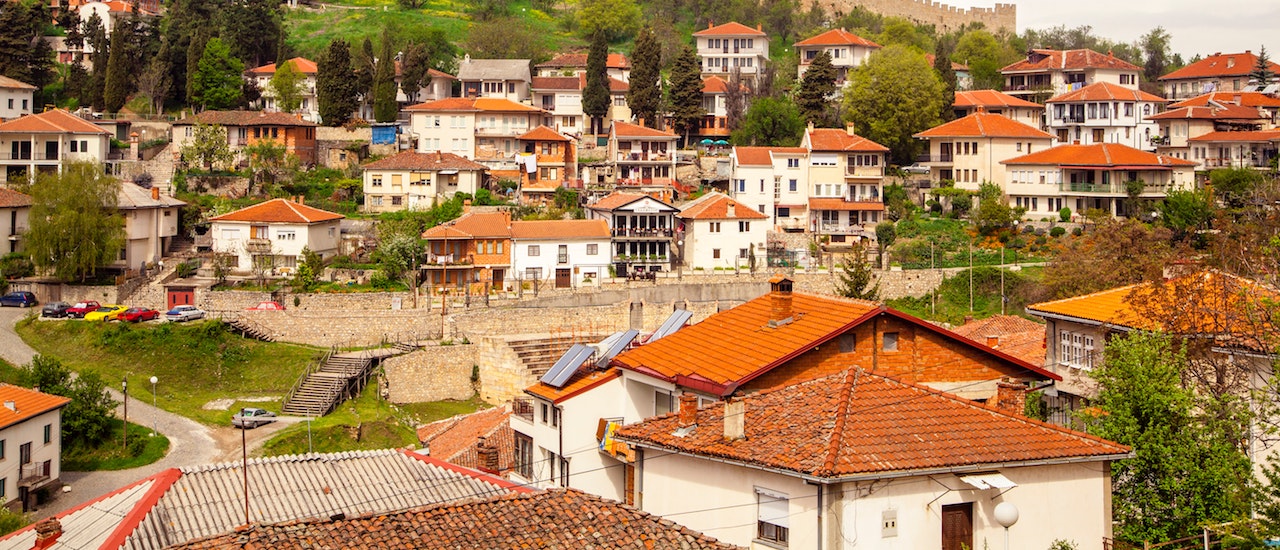The Internet Society has been supporting the development of the Internet in Macedonia by collaborating with the Faculty of Computer Science and Engineering (FCSE) of the Saints Cyril and Methodius University in Macedonia on its IXP.mk project. IXPs play a critical role in bringing faster and more affordable Internet, and the Macedonian IXP (IXP.mk) had been established in June 2018 with technical support from a number of stakeholders.
Switch and MUX to Strengthen Infrastructure
As traffic grew, IXP.mk needed to increase its peering capacity with improved switching capabilities and space for data racks that would allow it to attract new participants to the exchange. In 2020, the Internet Society provided IXP.mk with a switch and two Fiber Optic Multiplexers (Fiber Mux) that enabled an additional peering location to be established in the Telesmart Telekom data center, thereby making it easier for other major networks and Content Distribution Networks to peer with each other. The Fiber Muxes support the transmission of multiple data channels over a single fiber that has been donated by an existing member of IXP.mk.
Critical Service Provider
With a strong peering infrastructure, IXP.mk is now a critical service provider to the country. It provides connectivity support to the Ministries of Health and Education, whilst providing extra capacity for Internet Service Providers (ISPs) to grow.
During the first quarter of 2020, when COVID-19 struck Macedonia, schools and businesses shifted online, putting unprecedented pressure on the country’s Internet ecosystem. ISPs that never operated beyond 80% capacity were almost at full capacity as data consumption grew. This growth in traffic meant that IXP.mk became critical to the functioning of the country as it ensured local traffic remained local, thereby improving latency, capacity and quality of service, making the Internet more resilient and affordable.
New Members at the Exchange
As traffic peaked in 2020 during the COVID-19 crisis, the two major players in the country, Macedonian Telecom and A1 Macedonia, joined the IXP. This increased interest in IXP.mk resulted in a doubling of the membership to 8, with daily average traffic increasing from around 80 Mbps to 400-600 Mbps. Furthermore, because FSCE is also a member of IXP.mk, it is able to facilitate online learning and deliver services such as video conferencing to around 5000 students who are now able to study from home.
A History of Handshake and Collaboration
Vladislav Bidikov of FCSE and leader of the IXP.mk project says it is a perfect example of how connecting IXP operators can enable the building and nurturing of networks, and a number of organizations, communities, and individuals were involved in supporting the establishment of IXP.mk. These include:
- RIPE NCC, first contact initiated at RIPE 71 in November 2015 and helped formulate the idea that later became IXP.mk.
- Leading community figures including Randy Bush, Martin Levy, Jan Zorz, and Sander Steffann, who provided technical advice on how to establish IXP.mk.
- Internet Society, contacted in 2016, supported the network with switches and fiber optic multiplexers and advocated for the inclusion of IXPs in the country’s regulatory processes. The Internet Society also initiated the workshop on the importance of IPv6 and local connectivity on 10-11 November 2016 in Skopje that included participation from the RIPE NCC, the Internet Neutral Exchange Association (INEX), and most Macedonian ISPs.
- DE-CIX, contacted in July 2018 after RIPE SEE 7 in Romania, supported the network with IPv4 and IPv6 space and an Autonomous System Number (ASN) for the route servers, whilst promoting the IXP.mk project to other operators.
Because of these efforts, IXP.mk has grown exponentially in the last couple of years. It plans to further increase its capacity to fully take advantage of its potential as the only IXP in the country, enabling it to serve more networks and encourage major content providers to come to Macedonia.
Image by Blueberry Nights via Unsplash

